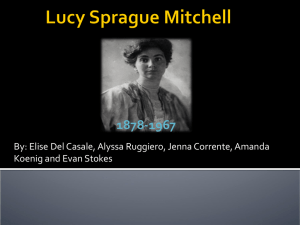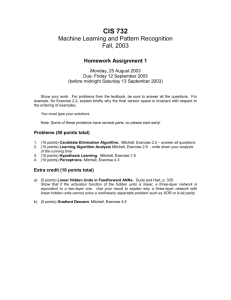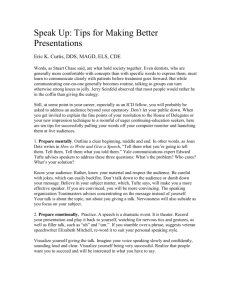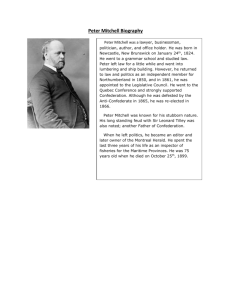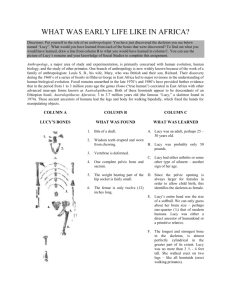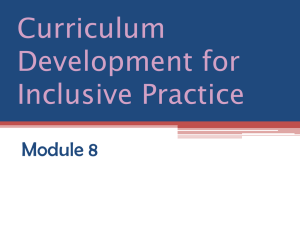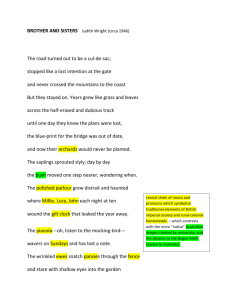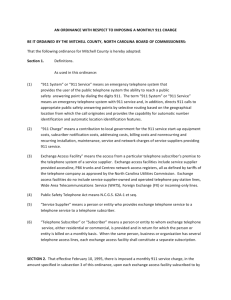Bank Street Approach final
advertisement
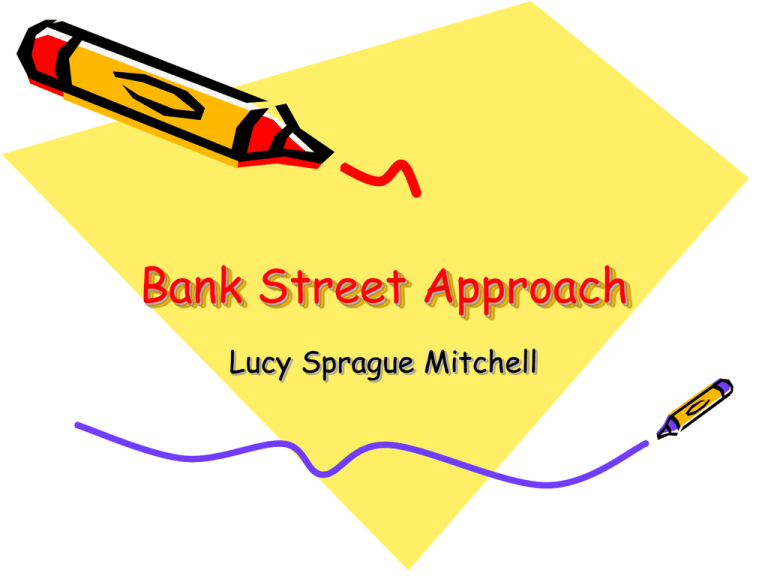
Bank Street Approach Lucy Sprague Mitchell In 1918: • • • • Children were seen and not heard All schooling was teacher directed Teaching was drilling Preschool education had not been researched • And then along came LUCY !!! LUCY SPRAGUE MITCHELL • The first Dean of Women at UC/Berkley. • A friend and admirer of John Dewey. • Dedicated to developing a new kind of education that would help build a more rational, humane world. Teamed with Carol Pratt, Harriet Johnson, and Elizabeth Irwin to change thinking about how children learn. Bureau of Education Experiments • Began in 1916 by L.S. Mitchell with a grant given to her by her cousin • Staffed by a physician, social workers, teachers • It’s objective was to study children in as free an atmosphere as possible! • A Nursery School was opened in 1918. WOW!!! HOW WAS BANK STREET DIFFERENT? Free expression in clay, paint and drawing was encouraged. Field trips to interesting places around the city, such as the zoo or a bridge. Children were encouraged to inquire about their world. The language of children was studied. Teachers were constantly reassessing and self reflecting to improve their pedagogy. “LIVELY INTELLECTUAL CURIOSITIES TURN THE WORLD INTO AN EXCITING LABORATORY AND KEEPS ONE EVER A LEARNER.” L.S.MITCHELL • Mrs. Mitchell studied children’s language for many years. She published her first book “Here and Now” in 1921 and it became an all-time best seller. This led her to develop the Bank Street Writer’s Laboratory in 1937 to do the work of writing for and about children. This was the first step in the Bureau’s effort to improve the quality of children’s literature – and that effort continues today! For example… Little Golden Books, affordable/ marketed to mass market/children feel ownership. Bank Street Readers- multi ethnic urban basal readers first published in 1965 and 1966. It was the first of its kind and entered the schools dominated by “Dick and Jane”. Preprimer readers- In the City and People Read. Bank Street Writers Laboratory-developing writers such as Margaret Wise Brown (Goodnight Moon) and Maurice Sendak (Where the Wild Things Are) 69 Bank Street became a place of metamorphosis in early childhood education. • Lucy Sprague Mitchell was a visionary who sought to improve the education of children and thus their teachers through research about early development and cognition. In so doing, she sought to improve the human condition and society as a whole. •I LUCY! • AND BANK STREET! End notes…. • I attended “nursery school” in 1959-60 in NYC – almost certainly modeled on Bank Street Approach. This is what piqued my interest in this model. In addition, the impact that Bank Street has had on education and early childhood learning as a whole, teaching us as educators to WATCH children and to LEARN from children impresses me greatly. Bank Street continues to be a laboratory for teachers, now serving as a college and graduate school for educators. It is an excellent resource for continuing education. Teachers from all over the world continue to flock to it’s present headquarters to learn the latest and finest in pedagogy. • For more information go to www.bankstreet.edu
